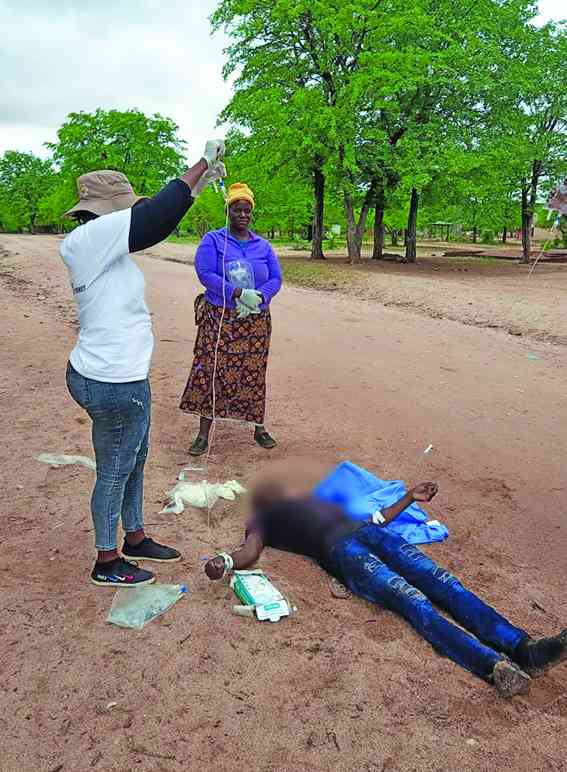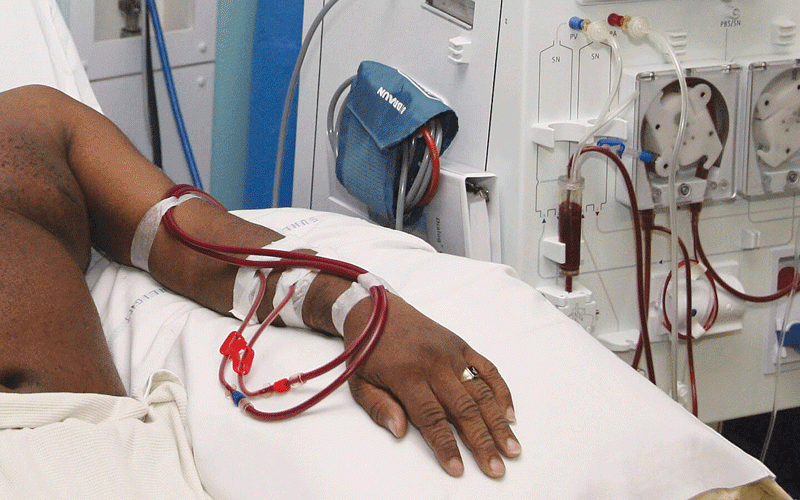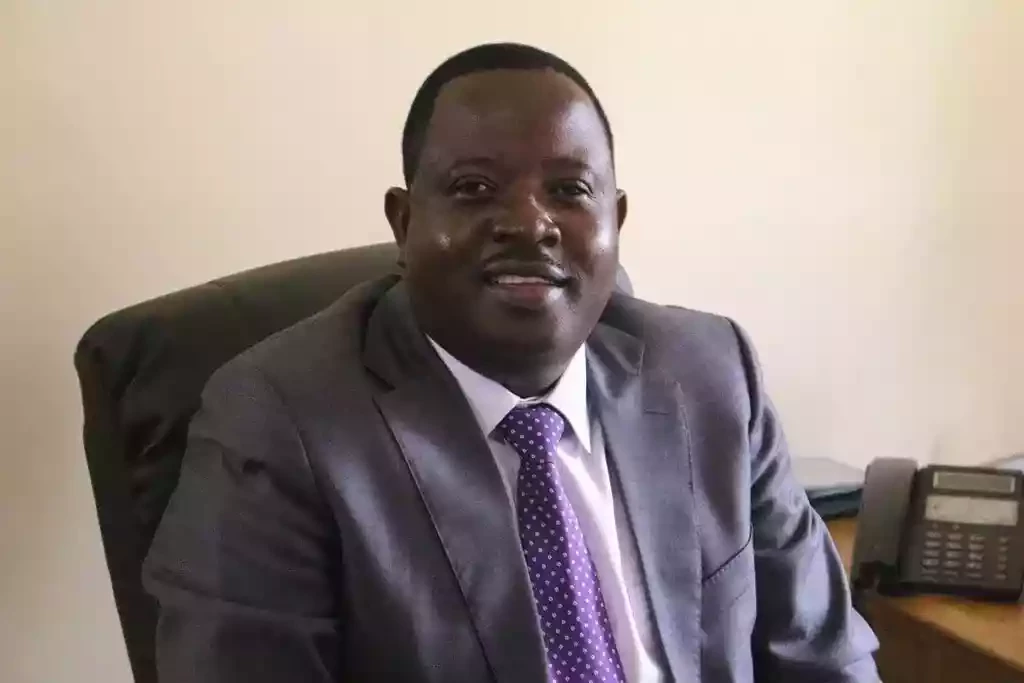
A MAN lies unconscious on the roadside in Chapanduka village, Buhera, attracting onlookers who conclude that he is dead.
The sweltering heat cannot prompt the villagers to leave the scene as they wait for authorities to arrive.
The man is a cholera victim who collapsed on the way to the nearest clinic due to massive dehydration.
A vehicle belonging to Médecins Sans Frontières/Doctors Without Borders (MSF) carrying medical personnel navigates the bumpy road and comes to a halt near the crowd.
The MSF medics establish that the man, who has cholera symptoms, is still alive, but collapsed from dehydration on his way to the medical centre — about 5km from his homestead.
The medics resuscitate and rehydrate him through a drip before ferrying the patient to a clinic for further treatment and monitoring.
“Had it not been for this mobile medical team, we could have lost him,” said Maurice Nhunzvi, a villager.
Buhera district in Manicaland province has been one of the cholera hotspots in the country since October last year.
- Feature: Mobile cholera treatment saves lives in Buhera
- MOTHERS’DAY: Motherhood and peer education roles help Melissa Sibanda to reshape her life
Keep Reading
The availability of mobile health personnel has been welcomed by villagers and other stakeholders with some patients being treated in the comfort of their homes.
"It does not matter where we are, if the patient needs immediate attention, we are there to assist. The goal is to save lives,” said an MSF nurse Rosewita Marunza who has been operating in the district for the past two months.
So far, 2 223 people have been infected with cholera in Buhera district alone with 44 of them succumbing to the deadly diarrhoeal disease.
Across Zimbabwe’s 10 provinces and 63 districts, 24 885 people have been infected and there have been 501 deaths since the first cases were identified in Chegutu in February 2023.
"We have had encounters with critically ill patients, some lying on roadsides, others being ferried to the hospital in scotch carts and wheelbarrows and some when we visit homes,” Marunza said.
She and other MSF staff have been responding to the cholera outbreak in Buhera since early October, treating patients and mentoring health staff at all 37 health facilities in the district.
They also assisted in setting up 21 cholera treatment centres in local health facilities and six oral rehydration points in villages across the district, as well as putting in place infection prevention and control measures and engaging local communities to encourage people to seek treatment and help to stop the disease from spreading further.
Due to a lack of clean drinking water and sanitation facilities in Buhera district, many people rely on water from unsafe sources and resort to open defecation due to unavailability of toilets.
An additional challenge is that three-quarters of the population in Buhera — around 200 000 people — belong to a religious apostolic sect which is averse to mainstream healthcare.
Most of its members shun seeking treatment in health facilities or taking part in public health initiatives, resulting in many avoidable deaths within the community and cholera victims being buried covertly, without guidance of health authorities.
MSF in collaboration with government through the Health and Child Care ministry and other partners trained 362 village health workers on case surveillance, active case finding, risk communication and community engagement and reporting.
To counter this, MSF teams are working with village health workers from the apostolic community, who have slowly but steadily succeeded in sharing health messages with members of their community, increasing their understanding of good hygienic practices and encouraging them to seek medical treatment when need arises.
Accompanied by MSF health promoters, village health workers attend public gatherings and hold educational sessions in busy places such as marketplaces and churches. They also attend funerals of cholera victims to make sure infection preventive measures are being adhered to.
"Seeing people die everyday pushed me to change my behaviour and save my family,” said Tecla Mandizvo, a village health worker, who is also a member of an apostolic sect.
“I also got the motivation to encourage others in our community to break the misconceptions about cholera. I managed to move door-to-door in order to engage the communities, including members of the church, and encouraged them to visit for oral rehydration en route to the nearby clinic if they notice any cholera symptoms. Today I have many who are coming to me if they suspect any cholera cases in their homes.”
Berenyazvi village head Jethro Bondai hailed the tireless efforts by village health workers in tackling the disease.
“The efforts of the community volunteers are appreciated by the entire community and this is important for us to learn how to prevent and protect ourselves from cholera,” he said.
Bondai is one of 270 traditional leaders from across Buhera district who are helping to tackle the outbreak through mobilising their subjects to seek medical attention as well as promoting hygiene in homesteads.
"Most people have been drinking water from the river because of the scarcity of boreholes,” Bondai said.
“I am encouraging households in my community to fetch water from the few boreholes that are well protected or boil their water so as to prevent contracting cholera. The spread of cholera has gotten out of hand."
The efforts made by community members, MSF and Zimbabwean health authorities to curb the spread of the disease appear to be working, as the number of cholera-related deaths are going down.
MSF is now scaling down its activities in Buhera district to focus on other districts which are still in crisis, including the capital Harare, where it is focusing on water sanitation and hygiene and treating cholera patients.
Caring for patients and enhancing cholera preventive measures are critical to bringing the outbreak under control. But MSF warns that, without ensuring that people access safe drinking water, cholera is likely to resurface regularly in Buhera district.
MSF has been working in close partnership with the Health and Child Care ministry since 2000 in response to cholera outbreaks and other health emergencies in Zimbabwe.











